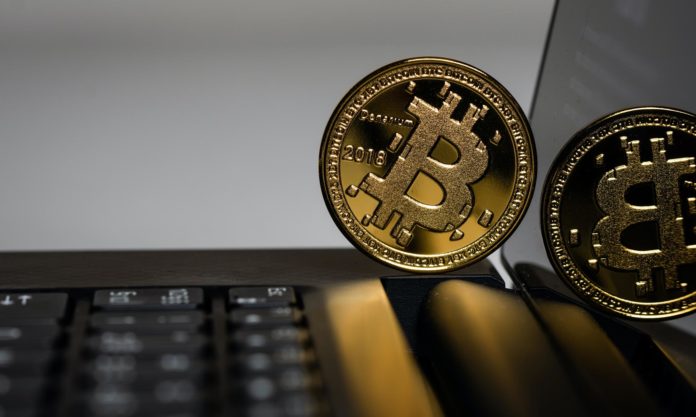(NOT FINANCIAL ADVICE)
VOLUME 1
As I write this, it is late January, the stock market is still trading near all-time highs, a Reddit army just blew up Wall Street short sellers on Game Stop (GME), the Biden-Harris administration is trying to pass a $1.9 trillion dollar stimulus bill but all I can think about is cryptocurrency. Since my initial interest during the late 2017’s “crypto craze,” I really didn’t start studying the fundamentals of it until late 2019 when I was turned onto something called Ethereum, a word that came up as misspelled on my 2007 version of Microsoft Word still despite it’s current market cap of $151 billion, putting it as the second largest cryptocurrency behind Bitcoin.
But before I go any gurther, let me back up and provide Wikipedia’s first paragraph describing cryptocurrency to at least provide some early definition and context to what it is.
Wikipedia defines cryptocurrency as a digital asset designed to work as a medium of exchange wherein individual coin ownership records are stored in a ledger existing in a form of computerized database using strong cryptography to secure transactions records, to control the creation of additional coins and to verify the transfer of coin ownership. It typically does not exist in physical form (like paper money) and is typically not issued by a central authority. Cryptocurrencies typically use decentralized control as opposed to centralized digital currency and central banking systems. When a cryptocurrency is minted or created prior to issuance or issued by a single issuer, it is generally considered centralized. When implemented with decentralized control, each cryptocurrency works through distributed ledger technology, typically a blockchain that serves as a public financial transaction database.
I suspect the above paragraph leaves more questions than answers, especially when you throw in words like “distributed ledger” and “blockchain,” terms which I realized, like learning the character names in Game of Thrones (Bran vs. Bron), knowing that a blockchain is a form of a distributed ledger was critical if I was expecting to come close to navigating the world of cryptocurrency after falling down the rabbit hole. Especially since I have yet to find a crypto caterpillar crawling around Medina waiting to give me straightforward investing advice, or Humpty Dumpty sitting on the proverbial wall explaining to me that blockchain is a form of a distributed ledger and both can be applied to decentralized finance as well as politics and a myriad of other institutions beyond finance. Bottom line, I am beginning to understand not only what cryptocurrency is but also why the growing interest and adoption of technologies like Bitcoin, blockchain and decentralized finance (DeFi) have far greater implications for our society as a whole beyond the highly volatile price speculation that you hear in the headlines.
I personally believe digital assets like Bitcoin, decentralized open-sourced blockchains like Ethereum and the nascent but quickly growing sector of FinTech in general have the potential to revolutionize the worldwide financial system as we know it by creating a far more level and equitable playing field. Yes, the headlines currently are “informing” you of wealthy fund managers buying millions in Bitcoin to diversify portfolios and hedge against inflation (cough, cough US dollar), or the dangers of Bitcoin funding terrorism and drug trafficking. Lest we forget terrorists prefer financing in USD cash, and apparently approximately 80% of all dollars in circulation have cocaine on them.
However, what you’re likely not hearing about is that cryptocurrency is an asset class with the potential to be far more inclusive than any other currency or medium of exchange before it by allowing access to millions of people who currently have limited to no access to the financial institutions or credit instruments that people living in cities like Medina take for granted on a daily basis. For the first time in history, citizens in developing countries will have an alternative to relying on a corrupt or incompetent central government causing their currency to crash (ie Argentina at the turn of the 21st century) or dealing with the effects of say, an inverted yield curve through no fault of the everyday citizen. For the first time in history those living in a first world country, who still can’t get a loan from a bank or are forced to pay crippling interest rates just to be stuck in debt forever, will have alternatives given the nearly limitless freedom that peer-to-peer networks and decentralized blockchains offer (as they develop over the upcoming years). Or how about those who are justifiably concerned that the perpetual printing of fiat money (The Federal Reserve), even when done with the best intentions (agendas?) in mind (ie Covid relief, redistribution of wealth, etc.), will likely lead to the devaluing of that currency over time and ultimately hurt the disenfranchised the most anyway.
Now, of course there are plenty of naysayers at the moment and one of the most common narratives against cryptocurrency I’ve heard are those that argue there is no inherent value in a digital currency. I find this to be an ignorant argument at best and disingenuous at worst considering that some of the strongest currencies in the world are underpinned by nothing but a central government that dictates the value and the collective agrees to it. Let us not forget that the US ended the gold standard about 40 years ago this August. At times I wonder if the strength of most currencies in this world are more or less based on a combination of military might, natural resources, their relative credit score and the ability to maintain international intellectual property rights or steal them (China?) more than anything else. Yet I digress. At the end of the day, I believe cryptocurrency and the emerging concepts I’ve touched on above have the potential to create more equitable systems that are born from the laws of math and the strength of immutable code rather than our current systems that continually promise equity through legislation, yet will be forever corruptible by the human influence of those with centralized power and the ability to manipulate those without it.
Stay tuned for the April, May and June 2021 issues of LocalTies where I will be writing a column that digs in deeper to the transformational potential that cryptocurrency, blockchain, decentralized finance (DeFi) and FinTech can provide our country and the world during a time when we need it to solve problems; problems that we’ve had for millennia, but until recently have not had the tools required to begin actually solving them in a meaningful way.
Please note that none of my columns should be construed as financial advice. That being said, I look forward to taking this journey with anyone who is willing to listen to me fumble through trying to explain concepts and technologies that I, too, am in the midst of learning. After all, given my only recent exploration of the subject over the past three years and a complete lack of actual industry experience, my knowledge is based on reading articles, listening to podcasts (Coindesk’s The Breakdown with NLW) and audiobooks like The Infinite Machine by Camila Russo, late night discussions with friends and daydreaming alone on the subject far more than I should. In the meantime, I encourage you to Google “Satoshi Nakamoto” (creator of Bitcoin in 2009) and “Vitalik Buterin” (co-Founder of Ethereum in 2015) and David Chaum (inventor of cryptographic money, Ecash, in 1983).







